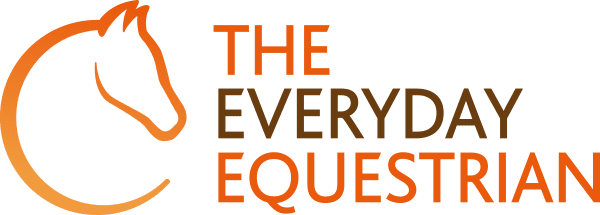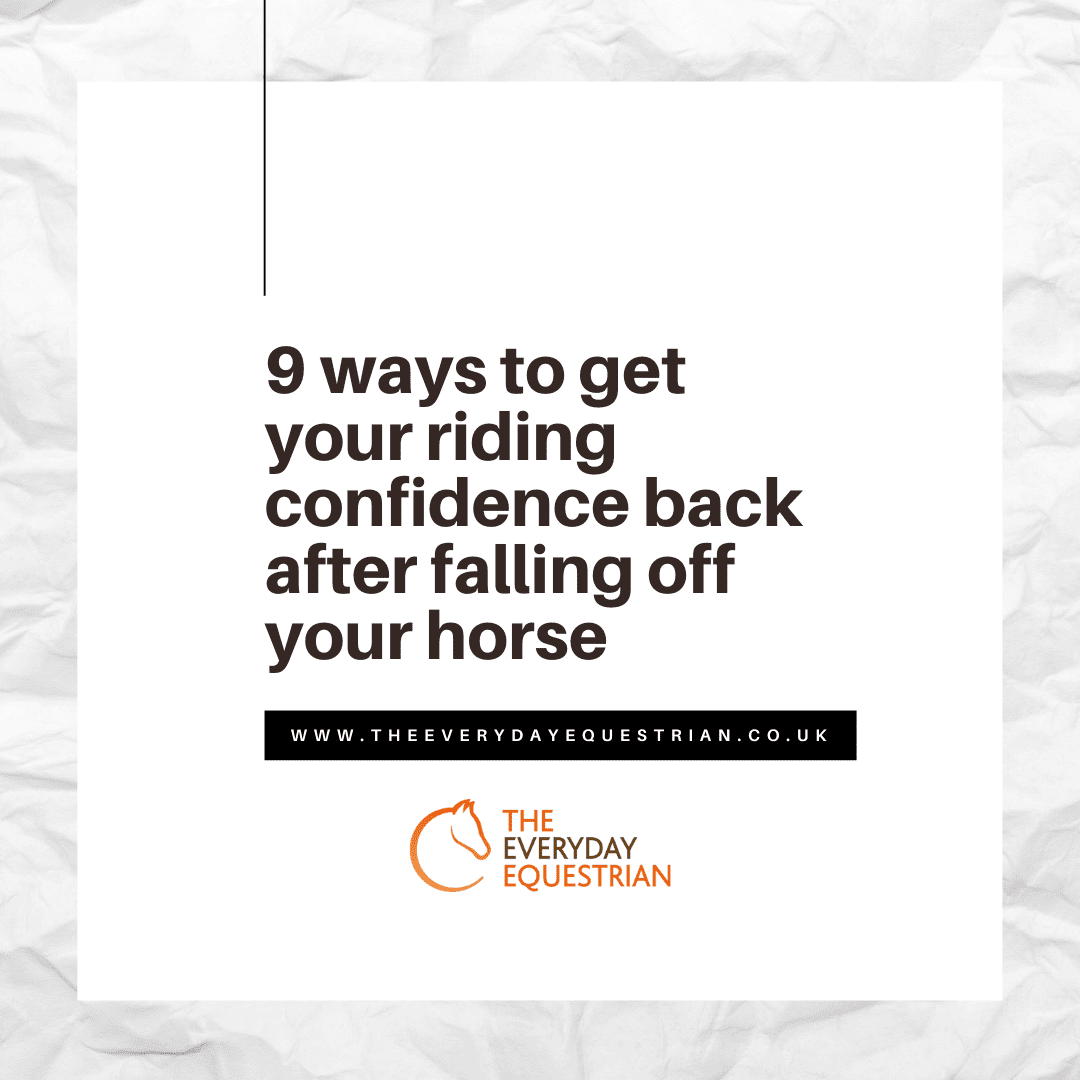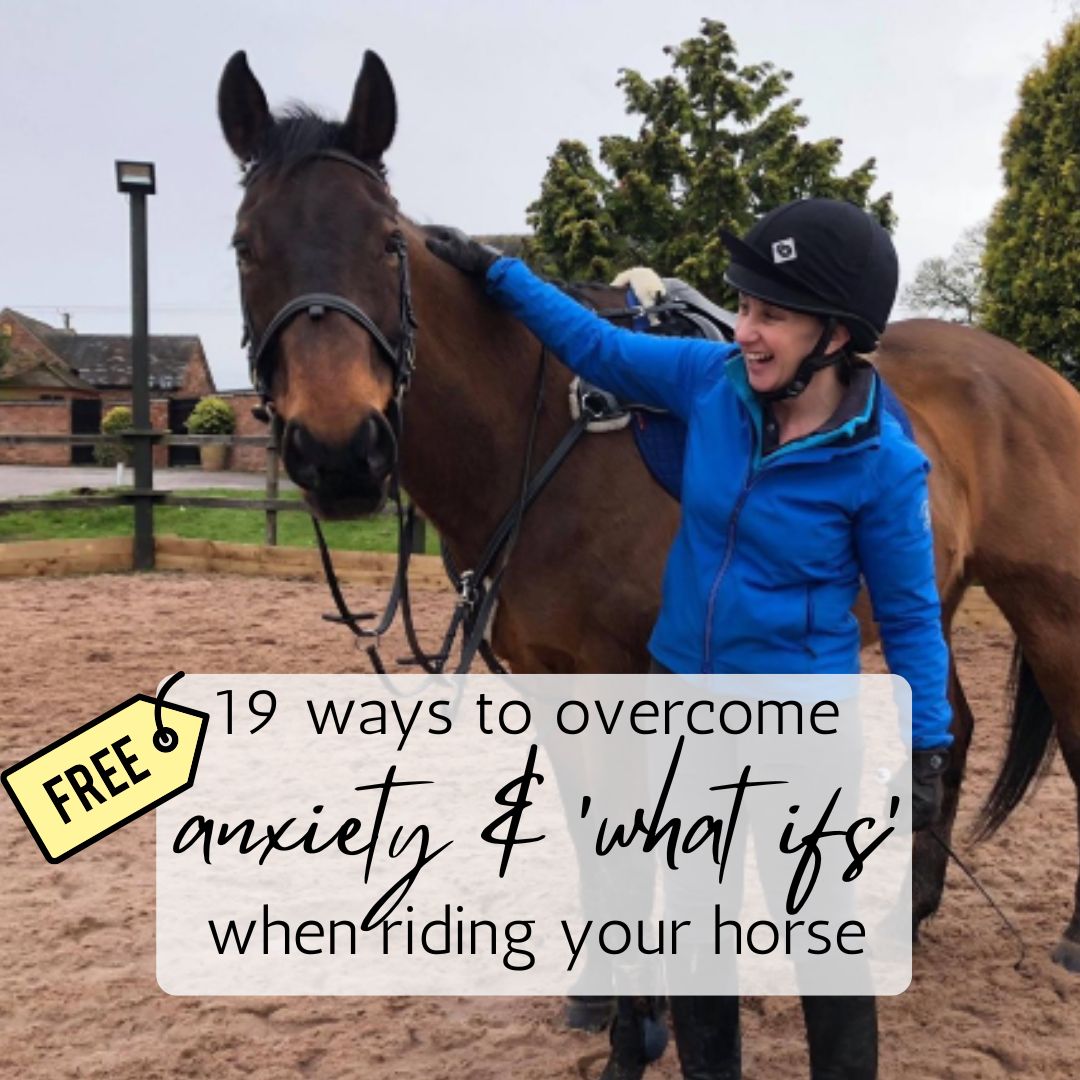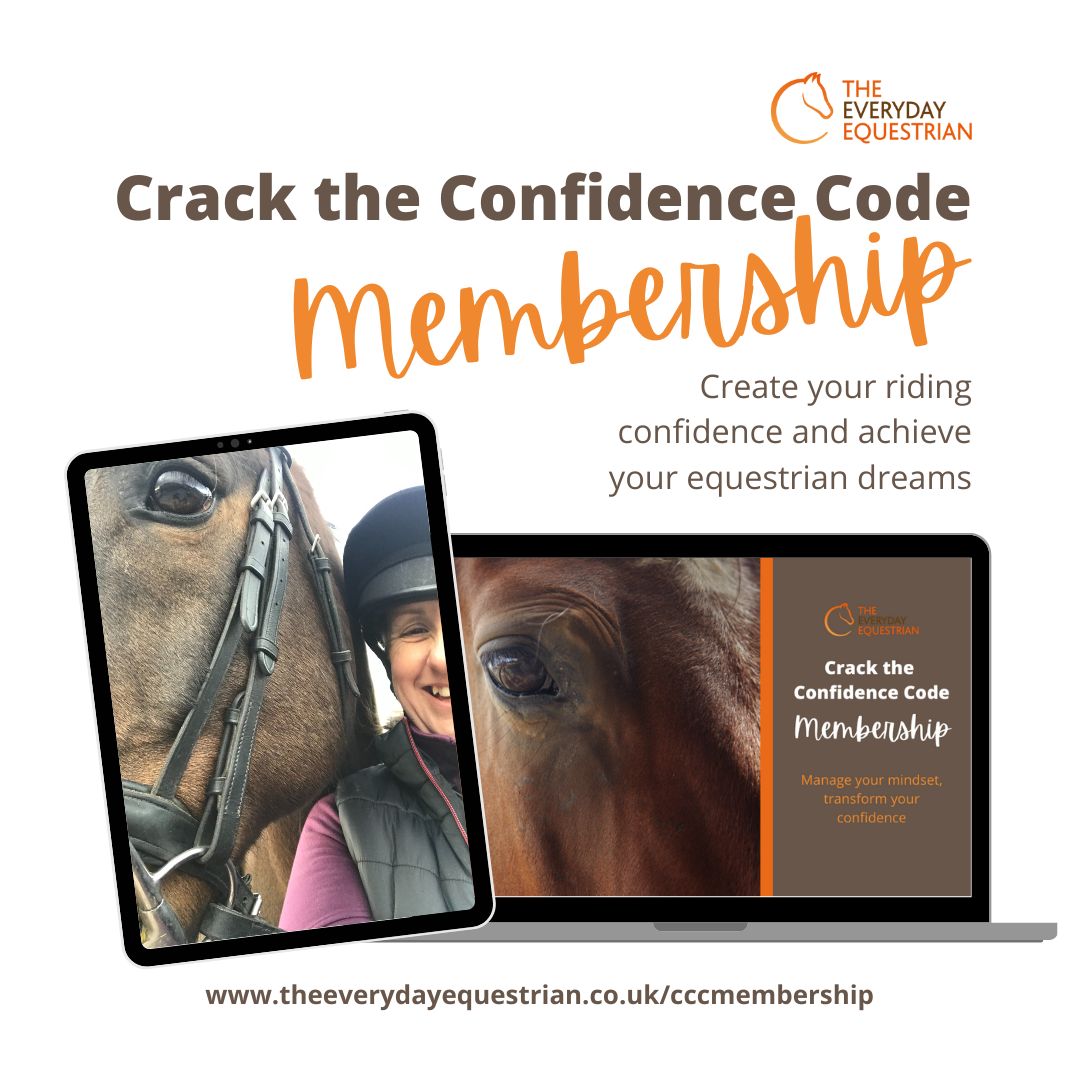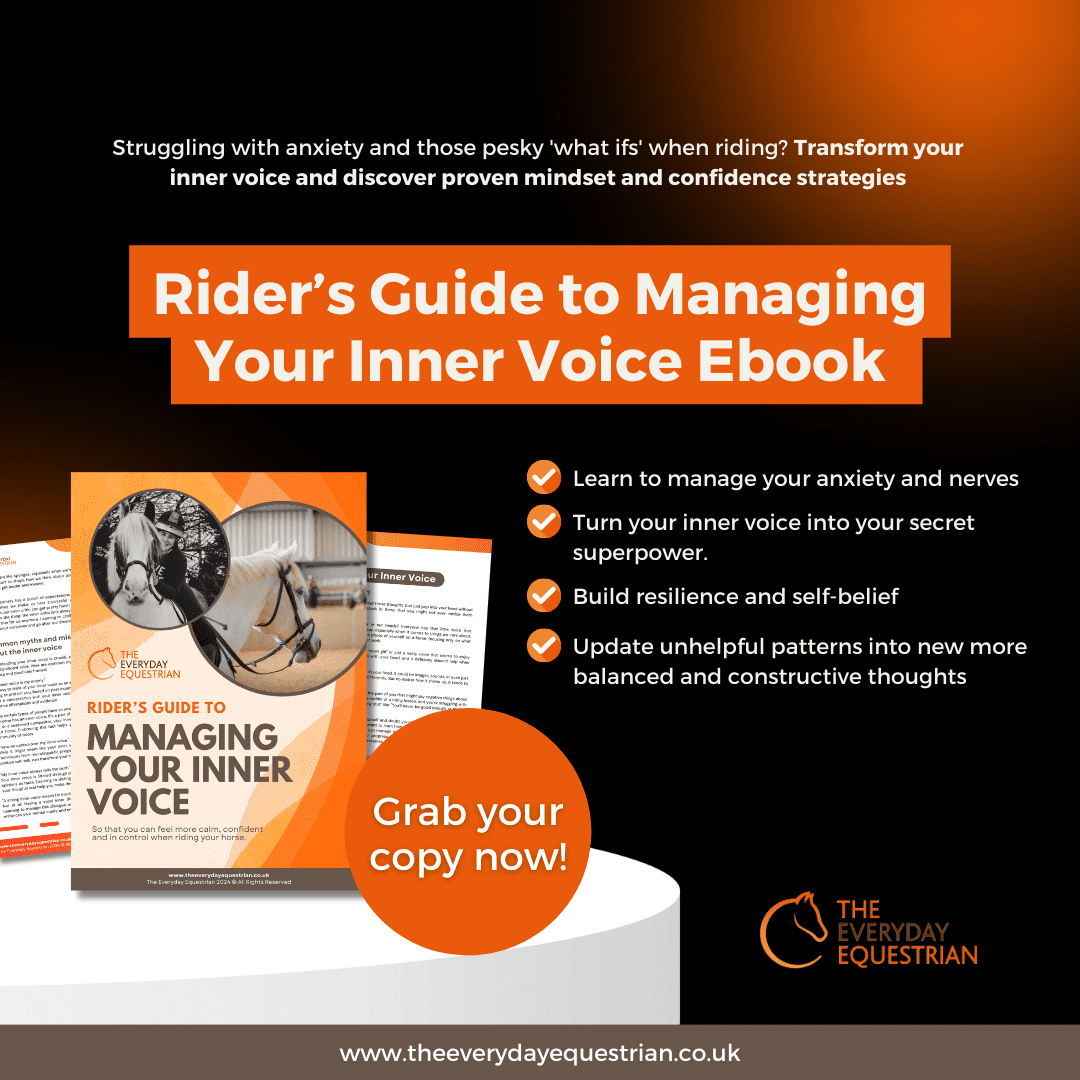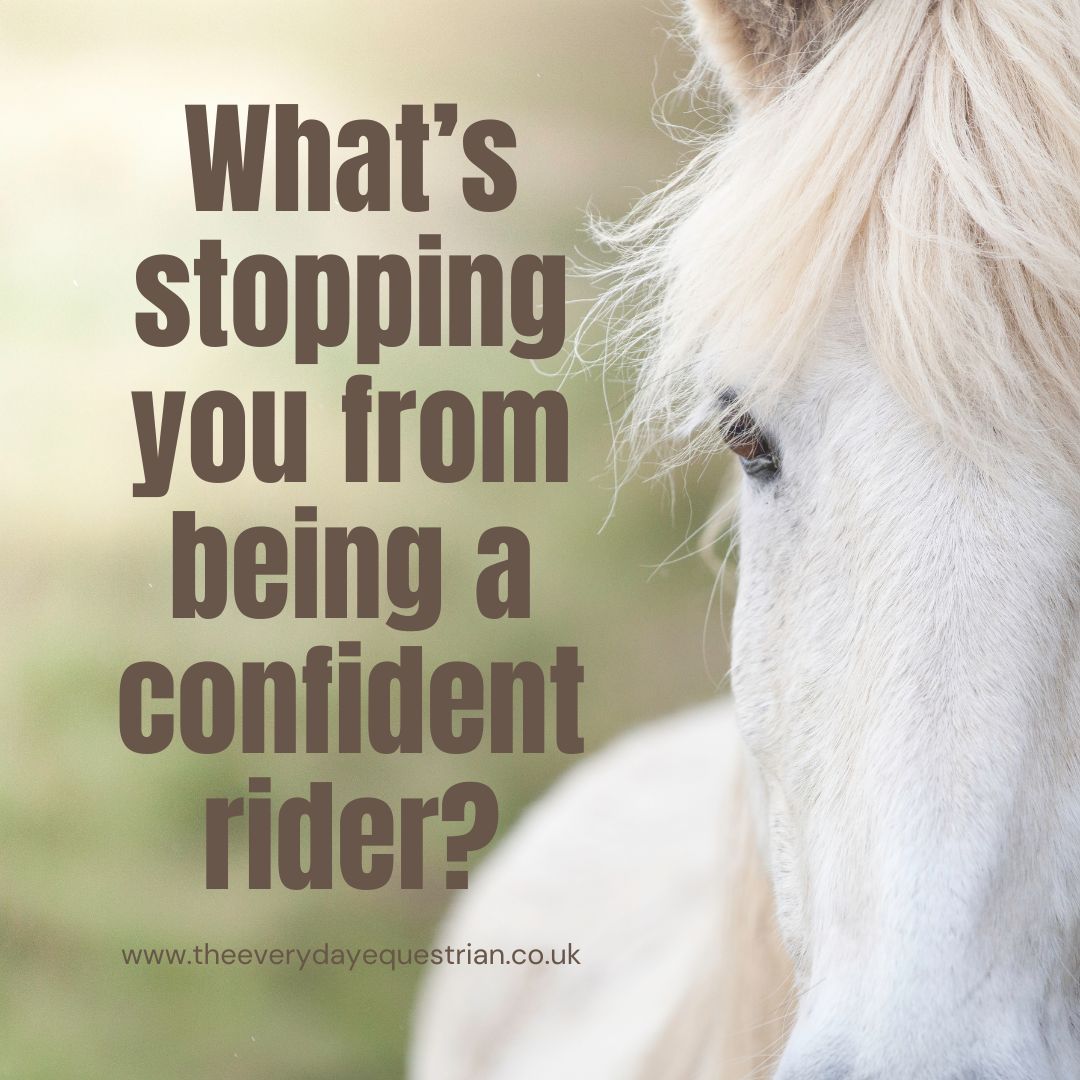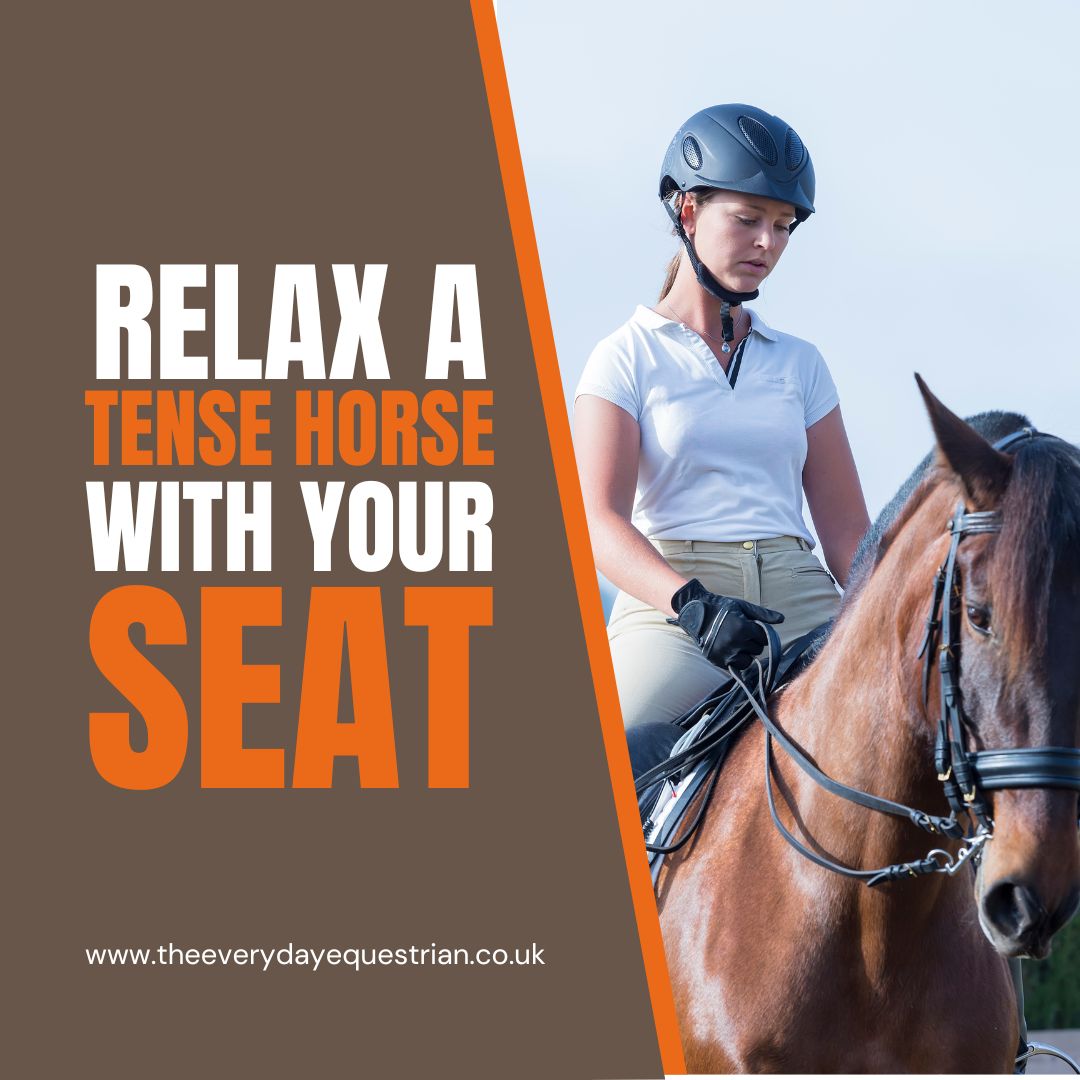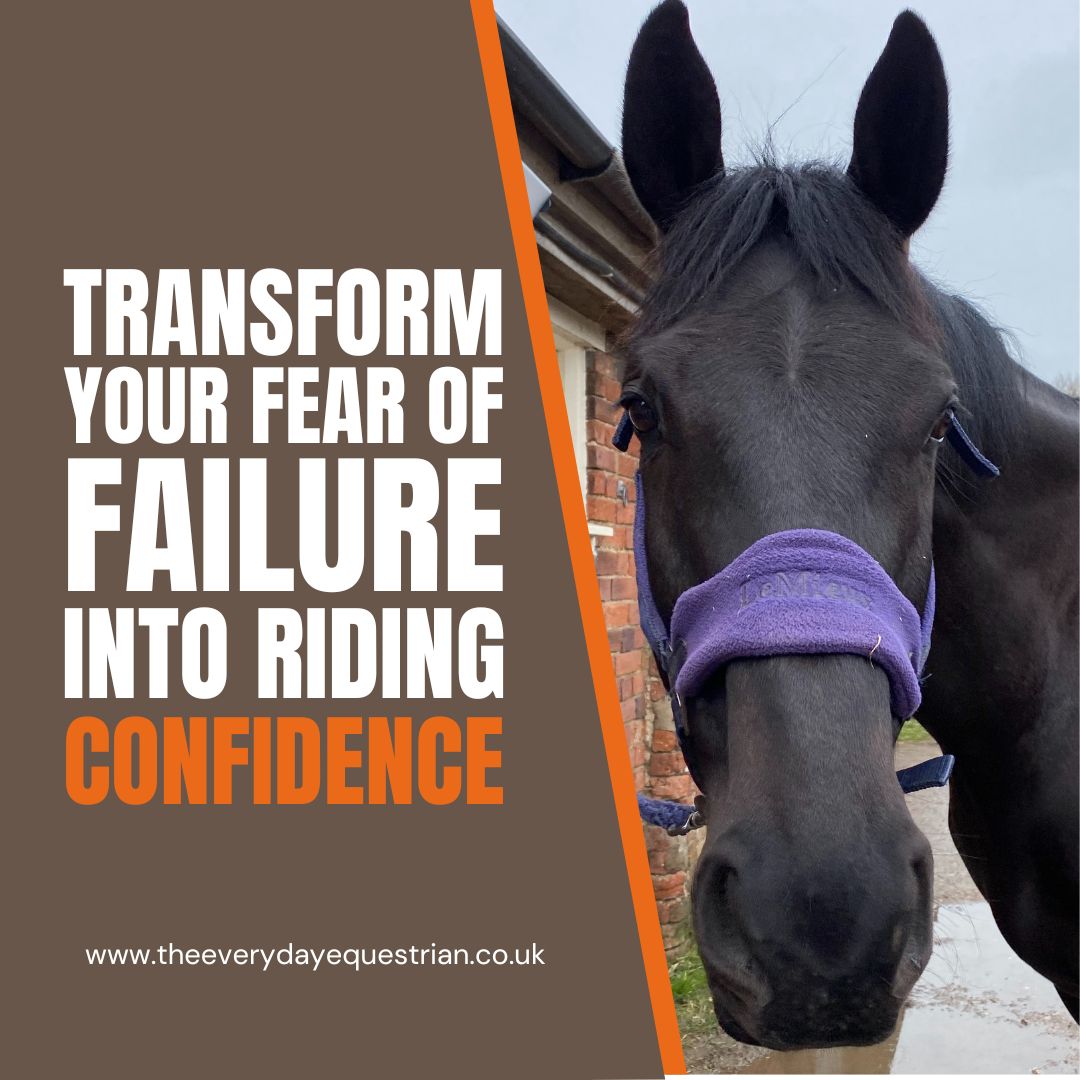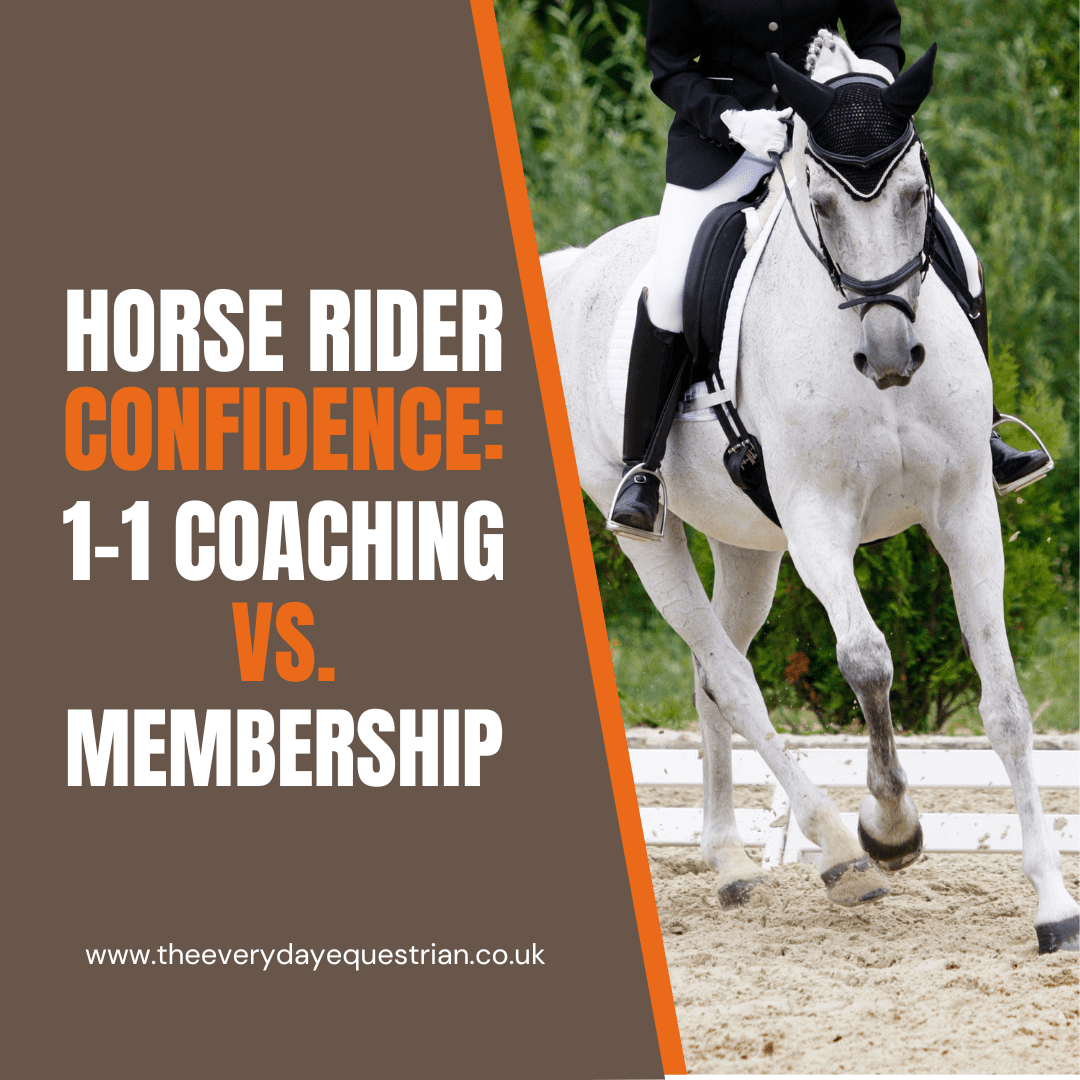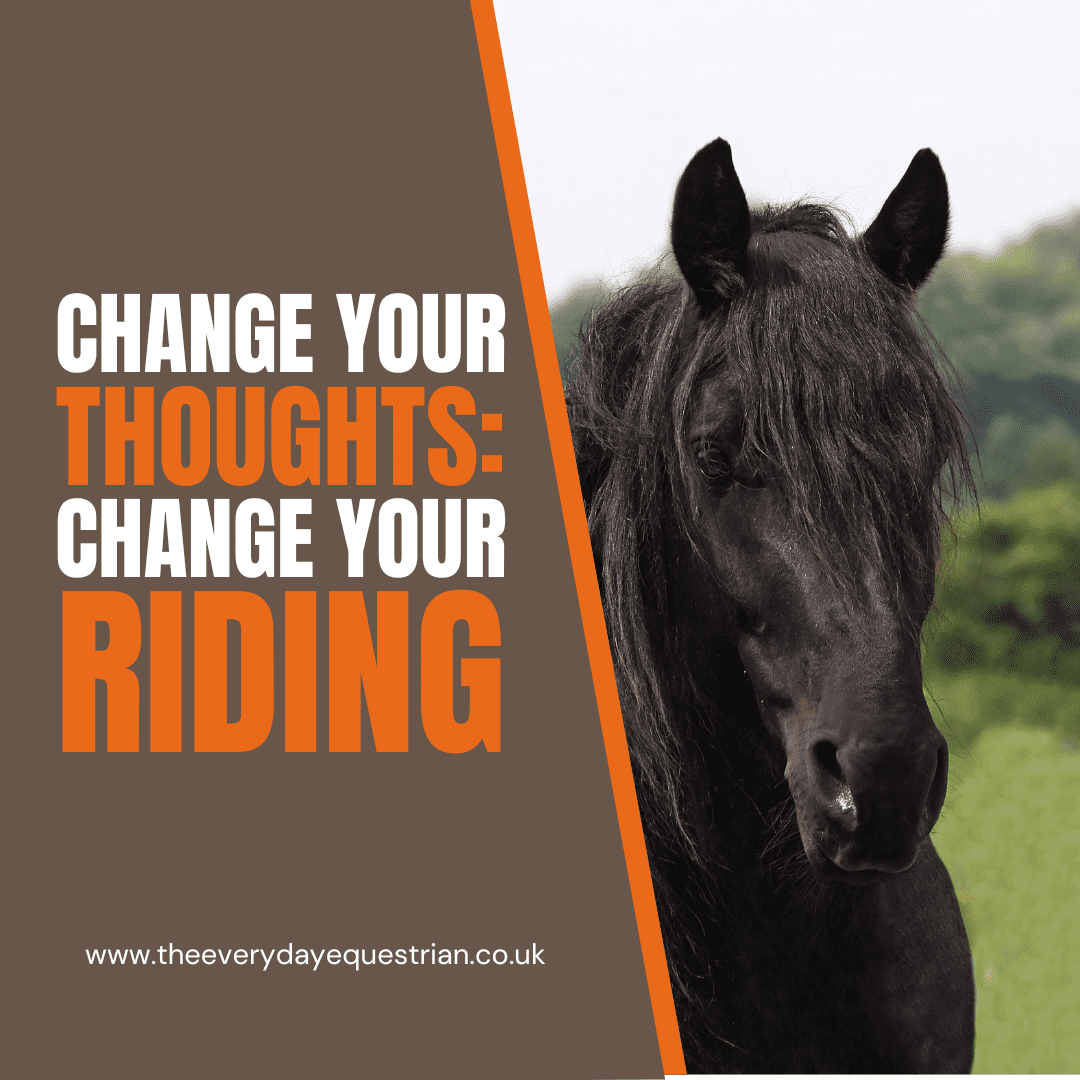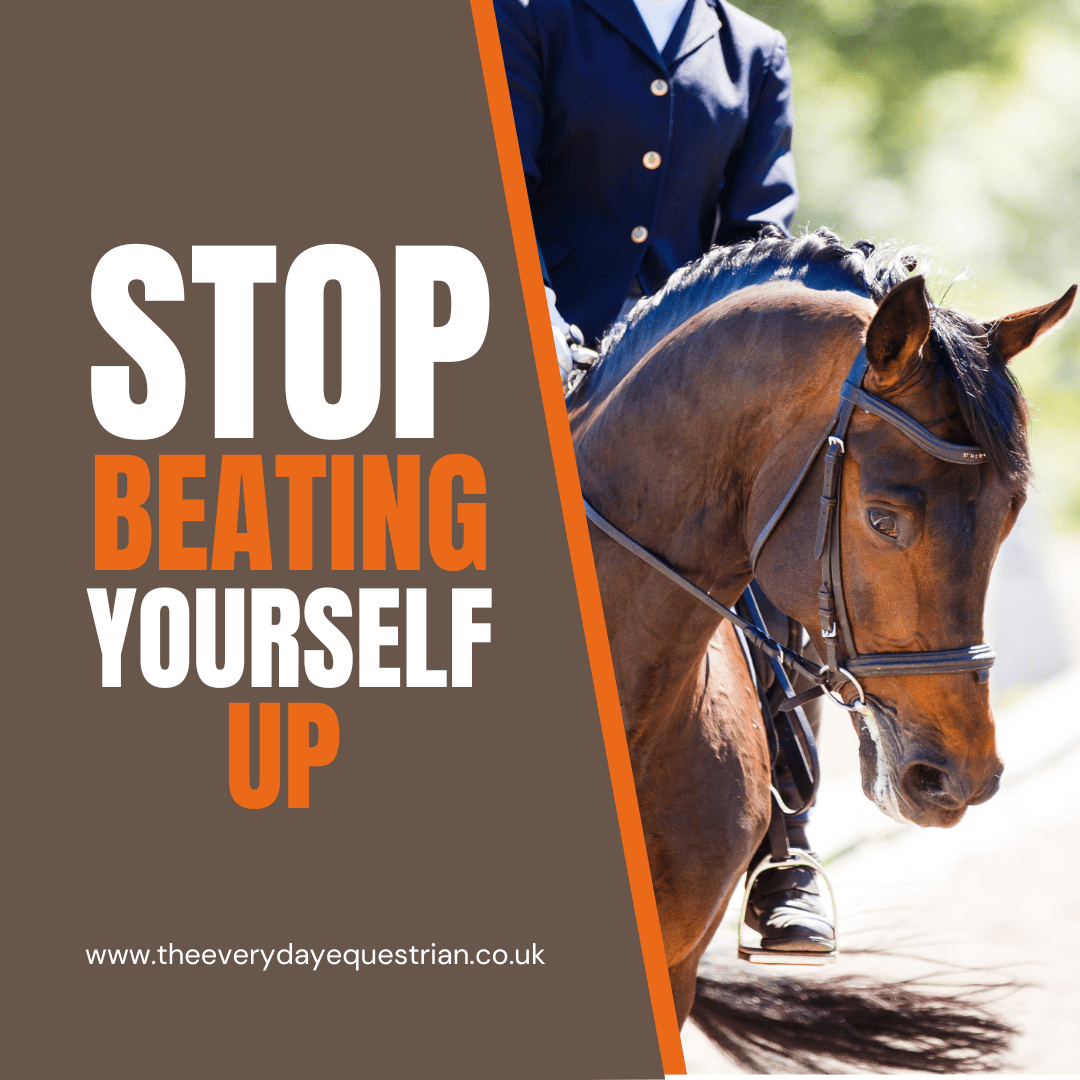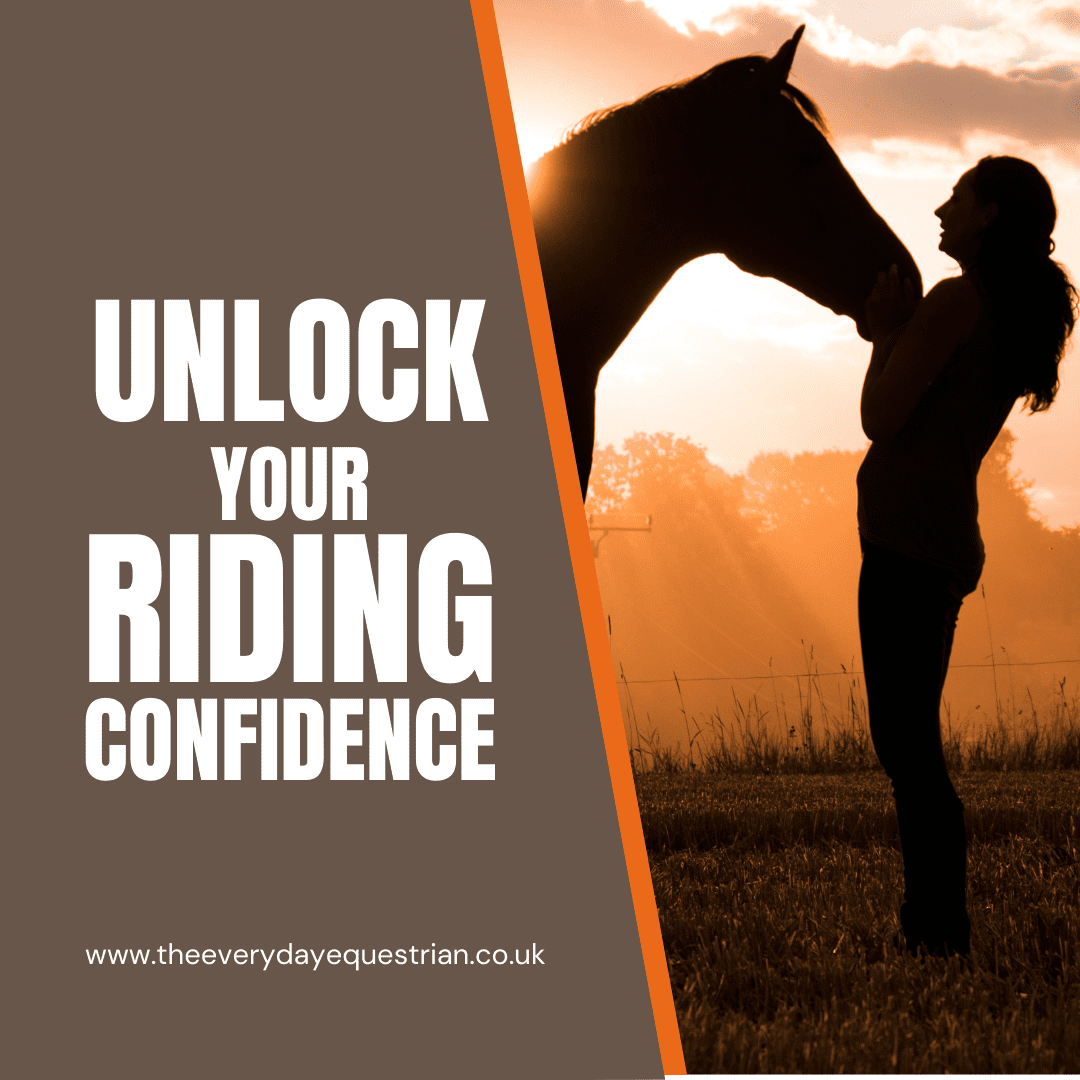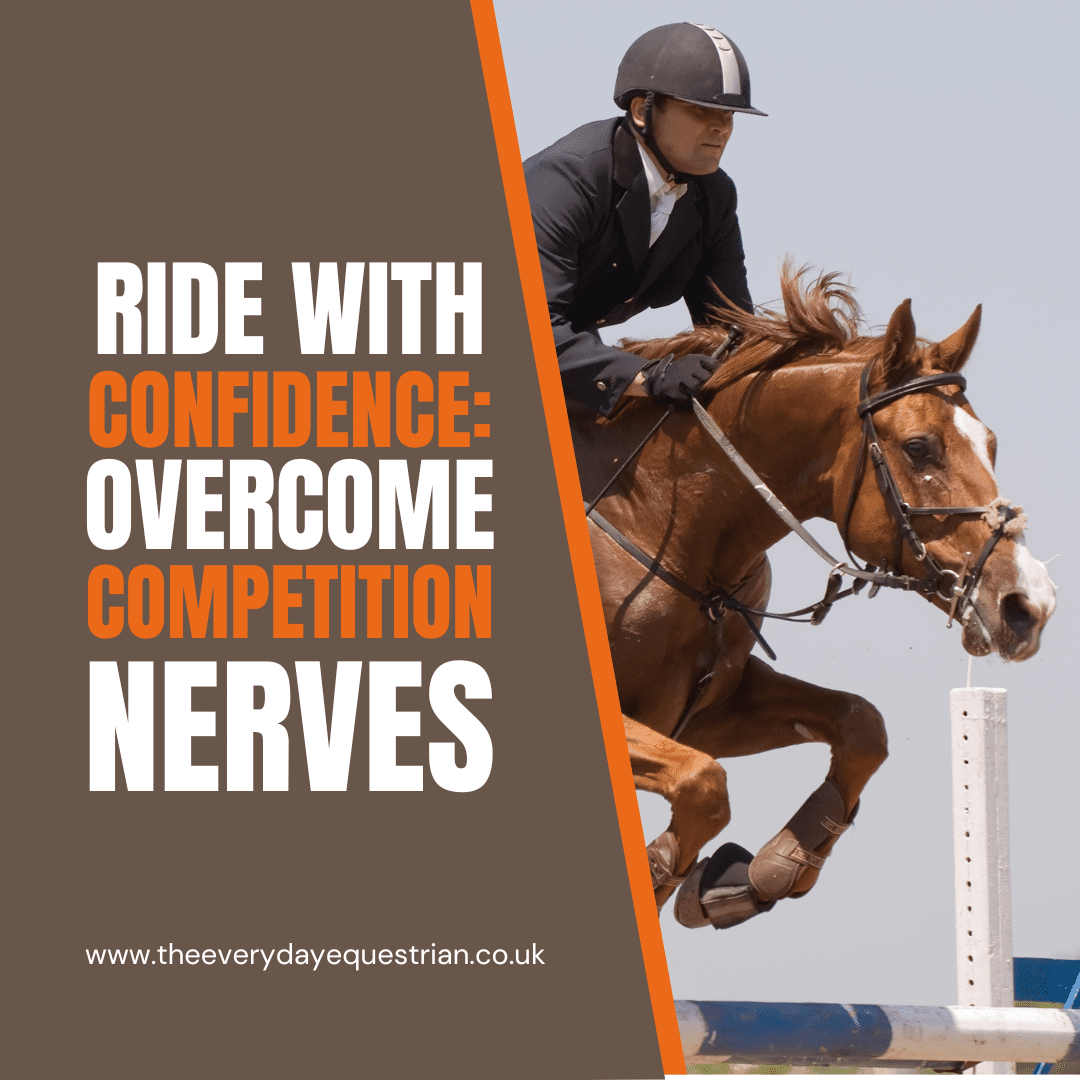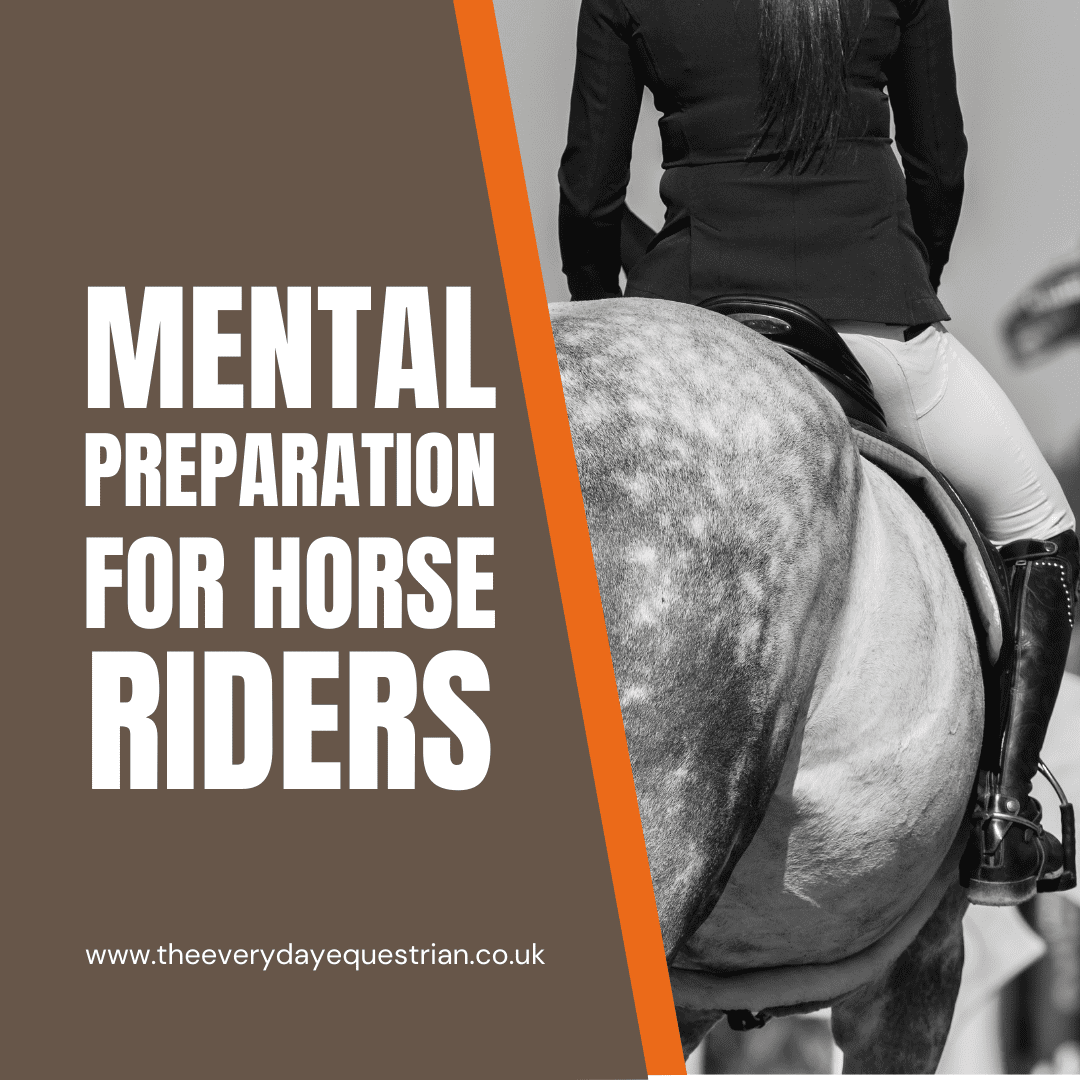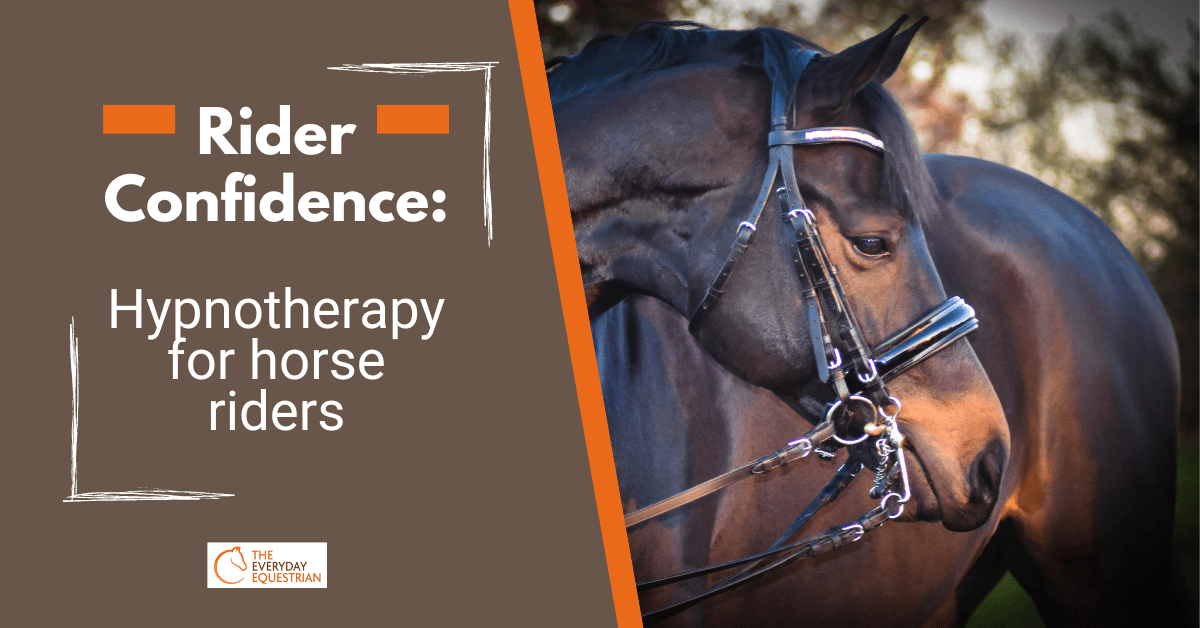Falling from a horse can be a scary experience and can often change the way we feel about our riding in the blink of an eye. Injuries are common from falls and it is true to say that physically we can potentially do a lot of damage from hitting the deck. Injuries from the incident more often than not heal with time and care, but the experience can stay with us for a long time after the event.
One of the biggest things riders struggle with mentally after a fall is with their confidence. Losing confidence can be highly frustrating for riders. One minute you and your horse are riding around effortlessly together without a care in the world and then boom! just like that, you are considering whether riding your horse again is a good idea at all. Fear kicks in and a mental roadblock stops you from progressing with your riding.
There are many reasons why you may have lost your confidence after a fall and many questions swirling around in your mind:
- You may be thinking that the same incident will occur again when you get on to ride.
- Maybe you are doubting your ability to be able to control your horse.
- Perhaps you are worried about what others are thinking about your riding ability now you have taken a fall.
It is important after any fall that you take the time to heal both physically and mentally. Getting back in the saddle with physical injuries will not do you any favours and will potentially put you at risk of further injury. Mentally it can take time to overcome the incident. You will not likely be looking at the situation rationally when it is so fresh in your mind. Invest the time in healing after a fall. It’s all very easy to listen to others who are pushing for you to get back in the saddle as soon as possible.
Taking the time to reflect after a fall can often be very helpful in the recovery process. One of the key questions you should ask yourself is, was there a reason for the accident? Determining the reason can often help put some clear perspective on the situation.
Was the accident due to unusual behaviour from the horse? Unusual behaviour could be classed as bucking, rearing or bolting. Something that you wouldn’t usually associate with your horse. In situations of this kind, it is always best to get your horse checked out for pain by the vet or physio. Checking that tack fits correctly is also important and can often be the result of pain causing unusual behaviour in your horse.
Was the accident a result of rider error? Was there a communication problem between you and your horse? Riding accidents can be the result of poor communication between horse and rider. Determining this as a possible cause can give you valuable feedback on why the incident occurred and can help you decide on what you and your horse need to improve on.
Let’s take a look at some of the key ways in which you can help regain your confidence back after a fall from your horse.
-
Time
They say time is a healer and this couldn’t be any more important after taking a fall from your horse. Take the time to heal both physically and mentally and give yourself the space to recover from the fall. Allow yourself the time to reflect on the incident when you feel you are ready and try to identify the reasons for the accident occurring. Take things slowly and progress step by step. Go back to the basics if necessary and start small. Don’t over face yourself and jump back in at the deep end.
-
Coaching
Regaining your confidence back after a fall can often be a tricky process on your own. Sometimes some outside help is required. Booking you and your horse in for a lesson with an equestrian coach who you trust can really help with building your confidence back up again. It can help you feel supported and much safer knowing you have someone on your side there with you, to address the practical skills and training required to get you and your horse back on track.
-
Experienced Riders
Finding an experienced, skilled and educated rider to help you and your horse through this difficult time can be a wonderful tool to help rebuild your confidence on your horse. If there are schooling issues that may have been the cause of the accident an experienced rider may be able to work through these issues and keep your horse in work if you are out of action or too nervous to ride. Plus the right person can help develop your horse’s way of going and overcome any ridden issues your horse may have.
-
Breathe
It may seem strange to suggest practising breathing, but many of us tend to stop breathing properly when we ride our horses. Nervousness and confidence issues often play a huge part in the way we are breathing when riding. Practising breathing techniques will help you relax and stay focussed whilst riding your horse.
-
Experienced Horses
Getting some lessons on a schoolmaster can work wonders for building your confidence. A schoolmaster can help you slowly regain your confidence, feel more comfortable and build on your riding skills. This can be particularly helpful for those who own a young or green horse.
-
Fitness
A rider’s level of fitness can play a huge part in not only the horse’s way of going but also your own security. Building up your own physical fitness, suppleness and core strength can help you become more balanced, secure and effective as a rider. The security in your seat and core strength can put you in a much safer position when incidents arise.
-
Confidence and Mindset
A fall from your horse can chip away at a positive mindset. It can take a considerable amount of time to build and maintain confidence in yourself and your horse. Working with an Equestrian Mindset / Confidence Coach can really help you to work through the psychological after-effects of an accident.
-
Asks Questions
Asking yourself questions after a fall can be very beneficial for your confidence. The trick is to ask yourself the right questions!! Ask yourself questions such as, “How else can I look at this situation?” and “What positive learning can I take away from this experience”. Asking yourself the right questions can make all the difference. Make sure however that you’re not asking the wrong questions, for example, “Why does this always happen to me?” or “Why am I such a rubbish rider?”. These will only undermine your confidence and make you feel worse!
-
Enjoy Your Riding
At the end of the day, riding is supposed to be a fun and enjoyable experience for all. If this isn’t the case then you need to make a conscious decision to make some changes. One of the key things you need to decide is what you need to change in order to reignite your passion for horses and doing what you love. Decide what you want to do, and take action to make progress towards your riding goals.
It’s easy to feel scared, stuck and frustrated after a fall, and it’s important to take action to help you move past your mindset gremlins. If you’re struggling with fear around riding after a fall, check out the Crack the Confidence Membership programme where you’ll learn how to overcome your nerves, anxiety and ‘what ifs’, so that you can refind your love and joy in riding your horse again! Click HERE for details.
